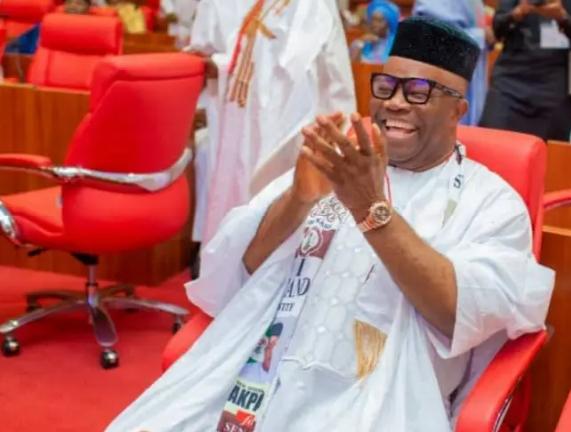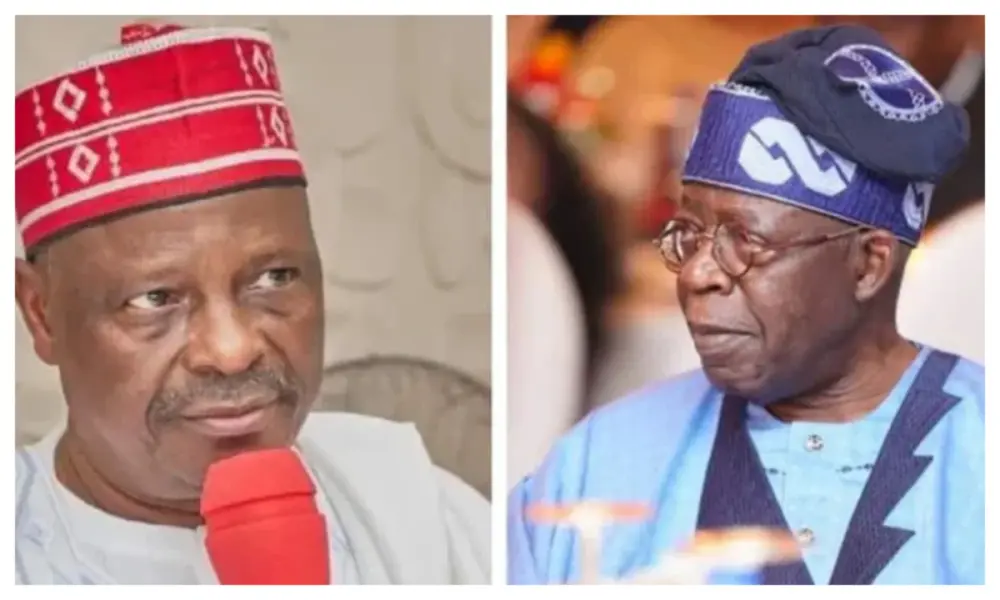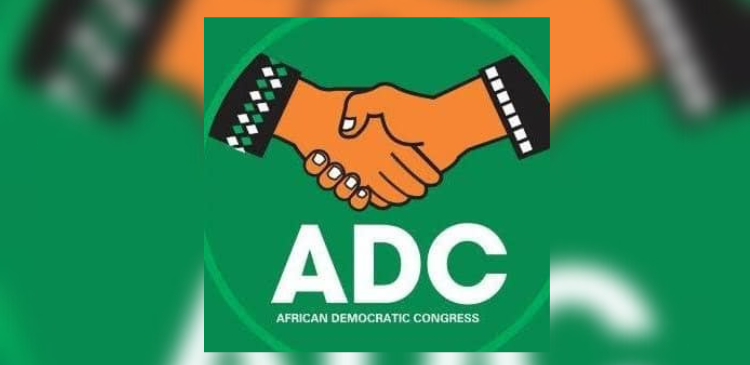Politics
UPDATED: How Akpabio Emerges As Senate President

A former governor of Akwa Ibom State, Godswill Akpabio, has been elected as the Senate President of the 10th Assembly.
Akpabio, who is the preferred candidate of the All Progressives Congress, was paired with the senator representing Kano South, Jibrin Barau.
The voting in the election of a new Senate President had commenced with Akpabio and former Governor of Zamfara State, Senator-elect Abdulazeez Yari, going toe to toe.
READ ALSO: BREAKING: Akpabio emerges Senate President, defeats Yari
After a quick recess, Sani Tambuwal, the Clerk of the National Assembly, declared Akpabio as the Senate President having garnered 63 votes leaving his rival with 46 votes.
Against the announced time of 10 a.m., the election started before 9 a.m.
After the Clerk of the National Assembly called for nominations, the senator-elect for Borno South, Ali Ndume, nominated Godswill Akpabio, senator-elect for Akwa Ibom North-East, as President of the Senate. Akpabio accepted the nomination; while Elisha Abbo, senator-elect for Adamawa North, nominated Abdulaziz Yari, senator-elect for Zamfara West.
READ ALSO: BREAKING: Barau Emerges Deputy Senate President Unopposed
The senators protested that Yari was not allowed to stand for the position as a first-time senator.
After the lawmakers cast their votes in alphabetical order, two representatives of each team came to count their votes.
Senators Adeola Solomon and Ndume came out to represent Senator Akpabio, while Abbo and the senator-elect representing Ondo South Senatorial District, Jimoh Ibrahim, represented Senator Yari.
Politics
PDP Crisis: INEC Rejects Turaki-led NWC

The Independent National Electoral Commission, INEC, has said it will not recognise the Kabiru Turaki-led National Working Committee, NWC, of the Peoples Democratic Party, citing existing court judgments and unresolved legal processes.
This was as contained in a letter dated December 22, 2025, signed by INEC Secretary, Dr Rose Oriaran-Anthony.
The Commission stated that it could not act on demands to acknowledge or upload on its website the list of national officers said to have been elected at the National Convention held on November 15 and 16, 2025, in Ibadan.
READ ALSO:Osun, Imo, Kano Lead As INEC Reports 2.3m New Voter Registrations
According to INEC, its position was guided by subsisting court decisions and pending litigation relating to the leadership crisis within the PDP.
The electoral body further noted that it would be improper to recognise any factional officers while the matter remains before the courts.
Politics
Govt That Fails To Protect Its Citizens Has No Business Remaining In Office – Kwankwaso

Senator Rabiu Musa Kwankwaso, leader of the Kwankwasiyya Movement and 2023 presidential candidate of the New Nigeria Peoples Party (NNPP), has accused the Federal Government under President Bola Ahmed Tinubu of lacking the political will to tackle Nigeria’s worsening insecurity.
Kwankwaso spoke on Tuesday in Kano while unveiling 2,000 operatives of the Kano State Neighbourhood Security Network.
He urged President Tinubu to “rise to the occasion and truly act as the Commander-in-Chief” in addressing banditry and other security challenges.
READ ALSO:Tinubu Embarks On Three-state Visit
According to him, Nigeria’s military “remains one of the most gallant in the world,” having served in international peacekeeping missions in Darfur, Liberia, and other conflict zones.
However, he said the armed forces are not being adequately supported to perform optimally.
“Today, many innocent Nigerians are being killed, while the perpetrators walk freely as if nothing happened. The government must apologise to Nigerians for its laxity in the fight against insecurity,” he said.
Kwankwaso, who once served as Minister of Defence, added: “When I was Defence Minister, I knew the capability of the Nigerian military. They are courageous and professional but need clear direction, support, and political will to do the needful.”
READ ALSO:Soyinka Decries Seyi Tinubu’s ‘Excessive’ Security Escort
He stressed that Nigeria’s armed forces had historically ranked among the best globally and urged the government to equip them properly to change the current security situation.
Kwankwaso also said that if elected president in 2027, he would recruit over one million additional military personnel to strengthen national security.
“Any government that fails to protect the lives and property of its citizens has failed woefully and has no business remaining in office,” he declared.
He further called on the Federal Government to integrate community-based security initiatives, like the Kano Neighbourhood Security Network, into the national security system to boost morale and improve intelligence-driven operations against criminals.
Politics
ADC Announces Temporary Closure Of Secretariat

The African Democratic Congress, ADC , says it has temporarily closed its National Secretariat as part of the end-of-year break.
A statement by its National Publicity Secretary, Bolaji Abdullahi, said full operations are scheduled to resume in the New Year.
According to the statement, the secretariat will close on December 23, 2025, and reopen on January 5, 2026.
READ ALSO:Irresponsible Of You To Blame Trump Over Rising Insecurity – ADC Blasts Tinubu’s Govt
The party, however, said essential skeletal services will remain available throughout the period, while all other official activities at the National Secretariat will be suspended to allow staff and party officials observe the Christmas and New Year holidays.
“This is to inform the public that the African Democratic Congress National Secretariat will close for the year on 23rd December 2025 and will resume full operations on 5th January 2026.
“During this period, only skeletal services will be available, while all other official activities at the Secretariat will be temporarily suspended,” the statement said.
READ ALSO:Hoodlums Set Ablaze ADC Secretariat In Ekiti, Disrupt Party Excos’ Inauguration
The party thanked its members, partners and supporters for their continued loyalty and cooperation throughout the year, noting that their support remains critical to the growth and stability of the party.
The ADC also said it is committed to its ideals and to democratic engagement as it prepares for activities in the coming year.

 News3 days ago
News3 days agoPHOTOS: New Era In Furupagha-Ebijaw As Okpururu 1 Receives Staff Of Office

 Metro5 days ago
Metro5 days agoJUST IN: Former Edo Information Commissioner Is Dead

 News2 days ago
News2 days agoUBTH CMD Marks 120 Days In Office, Expresses Commitment To Providing Conducive Working Environment

 News3 days ago
News3 days agoFG Declares Public Holidays For Christmas, New Year Celebrations

 Metro5 days ago
Metro5 days agoShe Grabs, Pulls My Manhood Anytime We Fight — Husband

 News3 days ago
News3 days agoOPINION: Gumi And His Terrorists

 News2 days ago
News2 days agoFIRS Confirms NIN As Tax ID

 Metro5 days ago
Metro5 days agoWhy I Charged My Husband Money For Sex —Woman

 News5 days ago
News5 days agoMy Wife Dented My Image, Took Our Marital Crises To Radio Stations — Husband

 News3 days ago
News3 days agoOPINION: Christmas And A Motherless Child


















